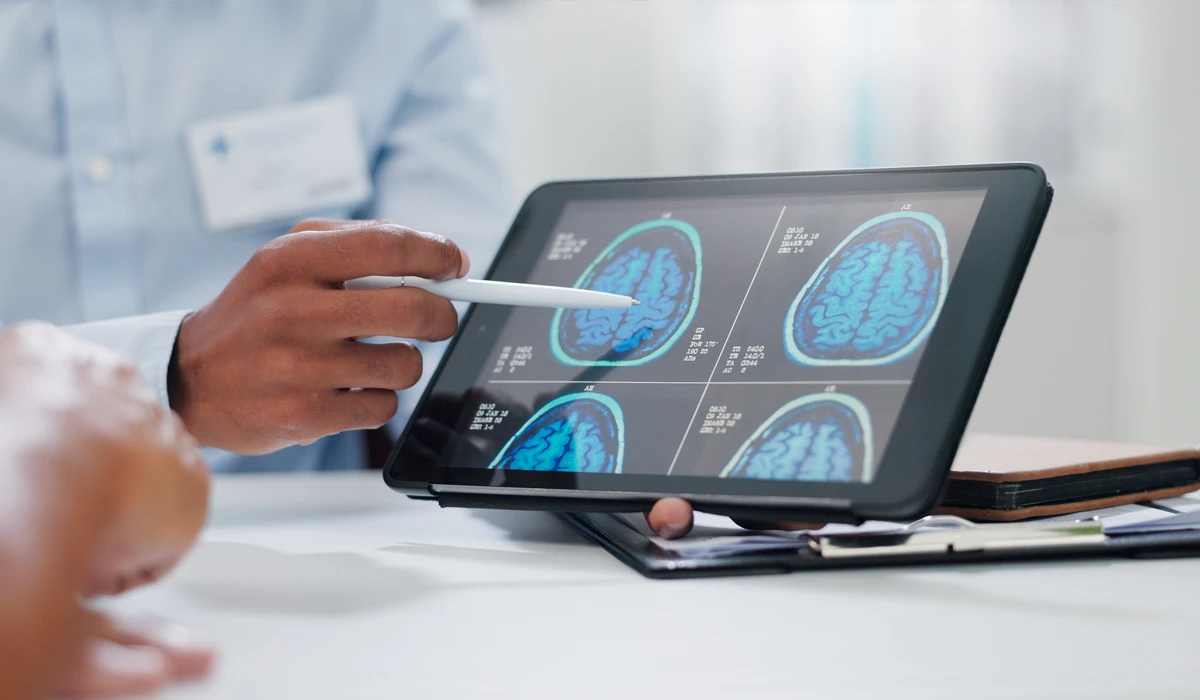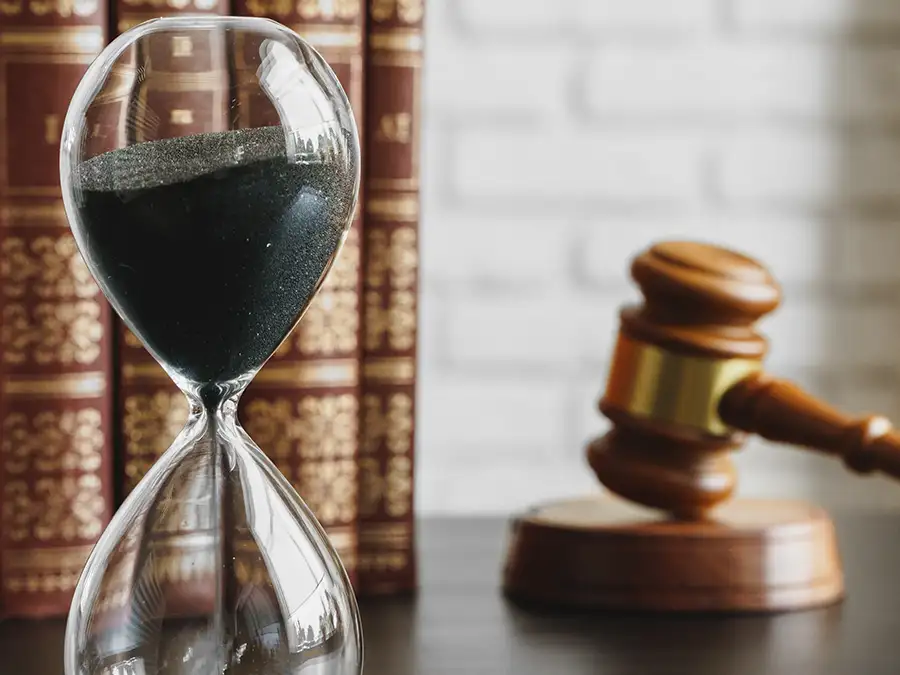Each year, thousands of people throughout West Palm Beach and Florida suffer traumatic brain injuries (TBIs), often with devastating consequences that ripple through every aspect of their lives. Yet these catastrophic injuries are often invisible, leaving victims to silently struggle with cognitive, emotional, and physical challenges that can derail careers, damage relationships, and rob them of their independence.
If you or a loved one has suffered a TBI due to another’s negligence in Florida, you don’t have to face this battle alone.
At Redondo Law, we understand the unique challenges TBIs present, and we’re here to fight for your right to full and fair compensation. Experienced West Palm Beach accident attorney Mike Redondo has a proven track record of securing significant settlements for TBI victims throughout Florida.
Find out how he can help with your brain injury claim by scheduling a free consultation.
What is a traumatic brain injury?
A traumatic brain injury (TBI) refers to an injury that disrupts the normal function of the brain, often resulting from a strong blow to the head.
TBIs can range from mild to severe and may involve extended periods of unconsciousness or memory loss after the injury. The effects of a TBI can vary widely, from physical and cognitive impairments to emotional and behavioral changes.
Did you know?
In Florida, the median cost to treat a non-fatal TBI injury in a Florida hospital is around $48,794, with total annual costs to treat TBIs in the state amounting to more than $1.8 billion.
What are the most common traumatic brain injuries?
Traumatic brain injuries (TBIs) are classified into 2 main categories: closed and penetrating.
Closed brain injuries
In closed brain injuries, the skull remains intact, but the brain is damaged due to the force of impact or rapid acceleration/deceleration. These injuries can include:
- Concussion. This is a mild TBI characterized by temporary loss of some brain function, often with symptoms like headache, dizziness, confusion, and memory problems.
- Contusion. This is bruising of the brain tissue, often accompanied by bleeding and swelling.
- Diffuse axonal injury (DAI). This injury is characterized by widespread damage to the brain’s nerve fibers (axons), typically caused by severe rotational forces. DAI is often associated with prolonged coma and can have long-lasting effects on cognitive and physical functioning.
- Hematoma. This is bleeding within the skull, which can be categorized as epidural (outside the dura mater), subdural (between the dura mater and arachnoid mater), or intracerebral (within the brain tissue).
Penetrating brain injuries
In penetrating brain injuries, an object pierces the skull and enters the brain tissue, causing direct damage. These injuries are often caused by gunshot wounds, stabbings, or falls onto sharp objects.
The severity and consequences of a brain injury depend on the type, location, and extent of the damage. In any brain injury, early diagnosis and treatment are crucial for maximizing recovery and minimizing long-term complications.
Can you fully recover from a traumatic brain injury?
Whether someone can fully recover from a traumatic brain injury (TBI) is a complex question with no single answer. Recovery varies greatly depending on the severity of the injury, the area of the brain affected, the individual’s age and overall health, and the quality of rehabilitation received.
With that being said, mild TBIs, like concussions, often result in full recovery within weeks or months. However, some individuals may experience lingering symptoms like headaches, fatigue, or difficulty concentrating, known as post-concussion syndrome.
Moderate to severe TBIs, on the other hand, can have a wider range of outcomes. Some individuals may recover significantly over time, while others may experience long-lasting or permanent effects.
What are the long-term effects of traumatic brain injury?
Long-term effects of TBI can include the following:
- Cognitive impairments. Problems with memory, attention, reasoning, and problem-solving.
- Physical disabilities. Weakness, paralysis, impaired coordination, and balance problems.
- Communication difficulties. Problems with speaking, understanding language, or reading.
- Sensory problems. Changes in vision, hearing, taste, or smell.
- Emotional and behavioral changes. Depression, anxiety, irritability, aggression, and difficulty controlling emotions.
- Epilepsy. This is a neurological disorder that results in seizures that can sometimes occur after a brain injury.
It’s important to remember that every individual’s recovery from a TBI is unique. With proper rehabilitation and support, many individuals can make significant progress and lead fulfilling lives, even with long-term effects.
The state of Florida has a number of resources available, as well as support groups, to help individuals suffering from brain injuries. We invite you to visit the Florida Health website for more information.
What types of accidents commonly lead to brain injury lawsuits?
In West Palm Beach, Florida, brain injury lawsuits can arise from various accidents, including:
- Motor vehicle accidents. Car, truck, and motorcycle accidents are leading causes of traumatic brain injuries (TBIs) due to the high-impact forces involved.
- Slip and fall accidents. Slips, trips and falls from heights or on slippery surfaces at restaurants, hotels, and amusement parks can cause serious head injuries, especially in elderly individuals.
- Workplace accidents. Falls, struck-by incidents, and machinery accidents can cause severe head injuries.
- Sports injuries. High-impact sports, like football and boxing, carry a risk of sports-related injuries, including concussions and other brain injuries.
- Assault and violence. Physical assaults commonly cause traumatic brain injuries through blunt force trauma or penetrating injuries.
- Product liability. Defective products, such as helmets or safety equipment, can fail to protect the head adequately and lead to brain injuries.
Additionally, some accidents are more prevalent in Florida due to its climate and lifestyle:
- Boating accidents. Fishing and boating accidents like collisions, falls overboard, or propeller accidents can lead to head trauma and brain injuries.
- Pool accidents. Negligent pool maintenance, a lack of supervision, or unsafe diving conditions can result in head injuries and drownings, leading to premises liability lawsuits.
- Pedestrian accidents. Due to the high volume of pedestrian traffic, pedestrian accidents involving cars or bicycles can result in serious head injuries.
- Bicycle accidents. Cyclists are vulnerable to head injuries in bike collisions with vehicles or falls, especially when not wearing helmets.
If you or a loved one has suffered a brain injury due to any of these accidents, seeking legal counsel is crucial. An experienced personal injury attorney can help you understand your rights and options for seeking compensation.
Florida personal injury claims process: Timeline & steps
A guide to help you understand the Florida personal injury settlement process so you know what to expect.
How do you prove negligence in a brain injury lawsuit?
Proving negligence in a brain injury lawsuit involves establishing 4 key elements:
- Duty of care. The first step is to demonstrate that the defendant owed the injured party a duty of care. This means they had a legal obligation to act reasonably and responsibly to prevent harm. For example, a driver owes a duty of care to other road users, and business owners have a duty to keep their premises safe.
- Breach of duty. Next, it must be shown that the defendant breached their duty of care. This means they failed to act as a reasonable person would in a similar situation. This could involve a driver running a red light or a property owner failing to fix a dangerous stair railing.
- Causation. The third element is to prove that the defendant’s breach of duty directly caused the plaintiff’s brain injury. This requires establishing a causal link between the defendant’s actions (or inaction) and the resulting injury. Medical experts often play a crucial role in establishing causation by providing testimony on how the defendant’s actions led to the brain injury.
- Damages. Finally, the plaintiff must prove that they suffered damages as a result of the brain injury. These damages can include medical expenses, lost wages, pain and suffering, emotional distress, and reduced quality of life.
To prove negligence, it’s crucial to gather evidence that supports each of these 4 elements. This can include:
- Medical records. These documents detail the extent of the brain injury, treatment received, and prognosis, which is another reason why it’s crucial to seek medical care immediately after an accident.
- Expert witness testimony. Medical professionals can provide expert opinions on the cause of the injury, the standard care required to treat it, and the expected long-term outcome.
- Accident reports. Police reports or incident reports can provide valuable information about the circumstances surrounding the accident that caused the brain injury.
- Witness statements. Eyewitness accounts can corroborate the events leading to the injury and the defendant’s actions.
Another critical factor to understand is that under Florida’s comparative negligence law, fault for an accident can be divided among the parties involved, which can reduce the compensation you receive based on your degree of liability.
This makes it crucial to seek the help of an experienced attorney as early on in the process as possible to ensure your liability is minimized and you receive the full compensation you deserve after a brain injury.
How much money can you get from a traumatic brain injury?
Traumatic brain injuries (TBIs) often result in life-changing consequences, necessitating extensive medical treatment, rehabilitation, and long-term care. Consequently, the compensation awarded in TBI cases can be substantial, often reaching into the millions of dollars.
However, the amount of compensation in any individual case depends on several factors, which we’ll break down below:
- Severity of the injury. Obviously, the more severe the TBI, the higher the potential compensation, as severe TBIs often result in long-term or permanent disabilities that require lifelong medical care and rehabilitation.
- Age at the time of the accident. Younger victims generally receive higher compensation as their injuries are likely to impact a longer portion of their lives and potential earnings.
- Impact on earning capacity. If the TBI affects the victim’s ability to work and earn a living, compensation may be awarded for lost wages and future earning potential.
- Medical expenses. This includes past and future medical costs for treatment, rehabilitation, therapies, medications, and assistive devices.
- Pain and suffering. Compensation for the physical pain and emotional distress caused by the injury is also a factor.
- Loss of enjoyment of life. This is compensation for the loss of the ability to participate in activities and hobbies that the victim enjoyed before the injury, which can vary greatly from person to person.
An experienced personal injury attorney specializing in brain injury cases will carefully evaluate all these factors and more to determine the appropriate amount of compensation to seek. They will work diligently to build a strong case that demonstrates the full extent of the economic and non-economic damages suffered by the victim and negotiate with insurance companies or litigate in court to secure the maximum possible compensation.
A guide to Florida economic damages in personal injury claims
Learn how economic damages are calculated in Florida personal injury and accident claims, including medical expenses, property damage, lost wages and more.
How long does it take to settle a brain injury case in Florida?
One thing that’s important for any accident victim to understand is that the time it takes to settle a brain injury case in Florida will vary significantly based on several factors, including the complexity of the case, the severity of the injury, the willingness of the parties to negotiate, and the court’s schedule.
On average, TBI cases can take anywhere from a few months to several years to reach a resolution. Simple cases with clear liability and minimal disputes may settle more quickly, often within 6 to 18 months.
However, more complex cases involving severe injuries, extensive medical treatments, and significant compensation claims can take 2 to 3 years or longer, especially if they proceed to trial, making it essential to work with an experienced attorney who can navigate the legal process efficiently and advocate for a fair settlement.
Get help from an experienced West Palm Beach brain injury attorney
If you or a loved one has suffered a brain injury that led to serious injury or wrongful death due to someone’s negligence in West Palm Beach, it’s crucial to seek expert legal representation as early on in the process as possible to help you gather and preserve evidence and build a strong case.
With a proven track record in handling complicated cases and a deep understanding of insurance company tactics from his early career representing them, skilled West Palm Beach injury attorney Mike Redondo knows how to fight for the compensation you deserve. You can trust him to navigate your case effectively and secure the best possible outcome for your recovery and future.
Reach out to Redondo Law today and take the first step toward justice by scheduling a free consultation to discuss your case and legal options.
References
Brain Injury Support Groups | Florida Department of Health. (n.d.). Www.floridahealth.gov. https://www.floridahealth.gov/provider-and-partner-resources/brain-and-spinal-cord-injury-program/resource-center/support-groups/brain-injury-support.html
Florida Department of Health. (n.d.). Www.floridahealth.gov. https://www.floridahealth.gov/index.html
Home Page – Resource Center. (n.d.). Www.bscipresourcecenter.org. Retrieved June 13, 2024, from https://www.bscipresourcecenter.org/
Traumatic Brain Injury (TBI) in Florida. (2015). https://www.floridahealth.gov/statistics-and-data/florida-injury-surveillance-system/_documents/data-fact-sheets/TBI_8.5×11.pdf



